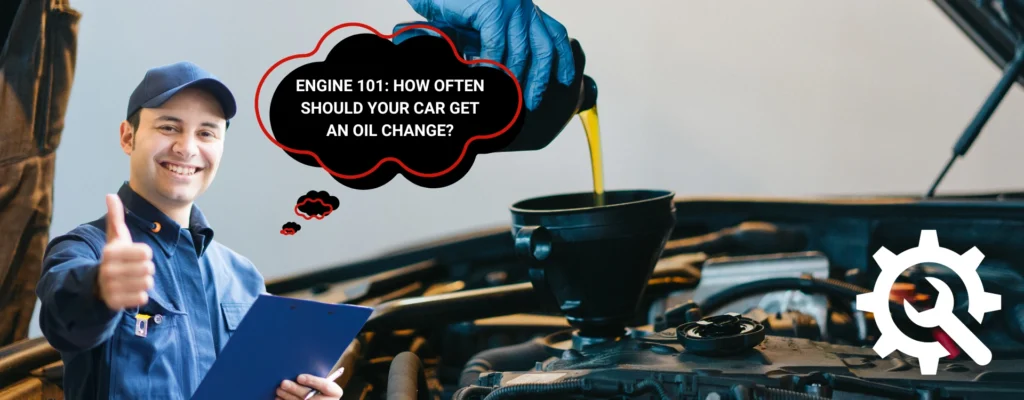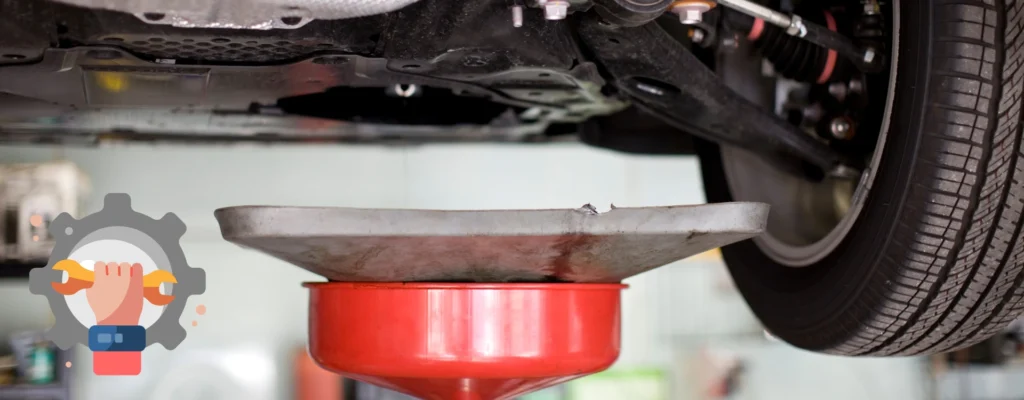
Regular motor oil changes keep your vehicle running smoothly and help prevent costly repairs. Knowing how often should your car get an oil change is key to maintaining engine performance and avoiding unnecessary wear.The right oil helps reduce friction, keeps components lubricated, and aids in managing engine temperature. Skipping or delaying a car oil change can lead to reduced efficiency, engine damage, and unexpected breakdowns. Staying on top of this maintenance task protects both your vehicle’s functionality and your investment.
IN NEED OF A POST- ACCIDENT CAR REPAIR?
Understanding the Role of Engine Oil
Oil keeps the engine running smoothly by reducing friction, managing heat, and protecting components from wear. Without proper lubrication, moving parts can grind against each other, leading to damage and decreased performance. By dispersing heat, oil also prevents the engine from overheating, thus maintaining its reliability.
Different types of automotive oil are available to meet various needs. Conventional oil is derived from petroleum and works well for standard driving conditions but may require more frequent changes. Synthetic oil is engineered for longer durability and performs well in extreme conditions. Synthetic blends combine features of both, providing an option that balances performance and cost.
Knowing how often should your car get an oil change depends on the type of oil, driving habits and your vehicle’s specifications. Always consult your owner’s manual for precise recommendations.
How Often Should You Change the Oil?
Regular car oil changes are key to keeping your vehicle in good condition. For conventional oil, it’s typically recommended to change it every 3,000 to 5,000 miles. Synthetic oil, known for its durability, allows for longer intervals, usually between 7,500 and 10,000 miles.
These intervals can vary depending on your vehicle’s make and model. Newer engines may handle longer intervals, while older models might require more frequent changes. It’s always a good idea to refer to your owner’s manual for the recommended oil change intervals. Factors such as your driving habits and climate conditions can also affect how often a car oil change is needed.
Factors That Influence Oil Change Frequency
How often should your car get an oil change? This depends on several factors that vary based on your driving patterns, environment, vehicle type, and manufacturer recommendations. Below are key considerations:
Driving Habits
The type of driving you do has a major impact on how often your car needs an oil change. In stop-and-go traffic, the engine works harder as it accelerates and decelerates frequently. This causes the engine oil to break down faster due to increased friction and heat.
In contrast, highway driving with fewer stops places less strain on the engine, allowing the oil to last longer. If you primarily drive in city traffic or make short trips, more frequent oil changes may be necessary to protect your engine.
Environmental Conditions
Extreme environmental conditions can affect the performance of your engine oil. Hot temperatures can cause the lubrication to thin, while cold temperatures can cause it to thicken, which may reduce its ability to lubricate the engine properly. Dusty roads can introduce particles into the lubrication, leading to contamination.
High humidity may cause moisture buildup, which also impacts the oil’s effectiveness. If you drive your car in an area with severe weather or frequent environmental challenges, it may be important to change your oil more often to keep the engine in good condition.
Vehicle Age
Older vehicles typically require more frequent oil changes than newer models. As cars age, their engines may experience more wear and tear, which can lead to faster oil degradation.
Newer cars, with modern engineering and improved components, may have longer intervals between oil changes. However, older vehicles may need more frequent car oil changes to compensate for the additional strain placed on the engine and oil.
Manufacturer Recommendations
Each vehicle manufacturer provides specific guidelines for oil changes based on the engine design and its components. These recommendations are important to follow as they take into account factors like engine size, type, and usage conditions.
While general rules are useful, your owner’s manual will provide the most accurate mileage intervals for your car, helping you avoid both over-maintenance and under-maintenance.
Signs That It’s Time to Change Your Oil

There are several signs that can indicate it’s time to replace old oil. Below are key signs to watch for:
- Dashboard warning lights. Many cars have a specific lubrication change light or maintenance light that will come on when you need to check the oil level or an oil change is needed.
- Dark or dirty oil on the dipstick. If the oil on the dipstick appears dark or contains debris, it means the oil has degraded and is no longer lubricating the engine.
- Unusual engine noise or performance issues. A lack of sufficient lubrication can cause knocking noises or lead to poor engine performance, signaling the oil may need to be changed.
Professional vs. DIY Motor Oil Changes
When deciding how often should your car get an oil change, you can choose between professional lubrication changes or performing the task yourself. Both options have advantages and limitations. Below are some points to consider for each approach:
Pros and cons of getting a professional oil change
A professional car oil change ensures that the job is done correctly by trained technicians who use high-quality equipment. This minimizes the risk of mistakes. However, it can be more expensive, and you’ll need to schedule an appointment, which could be inconvenient if you’re short on time.
Step-by-step guide for a safe and effective DIY oil change
Changing your own oil can save you money and allow you to have complete control over the process. To do it safely, you need the right tools, such as an oil filter wrench and a jack, and you must follow the proper steps for draining and replacing the lubrication. Taking safety precautions is important, as improper handling can damage your car or cause personal injury.
Legal considerations and the importance of proper disposal of used oil
Disposing of used oil improperly is illegal and harmful to the environment. It can contaminate soil and water. Always take used oil to a certified recycling center, where it can be processed and reused, keeping you compliant with local regulations and protecting the environment.
Get Expert Help with Your Oil Change and Car Maintenance
If you’re wondering how often should your car get an oil change, keeping up with regular maintenance is important for your vehicle’s performance.
For those seeking reliable and professional service, Collision Connect links you to a network of trusted repair shops. Whether it’s a routine car oil change or more extensive repair, these experienced technicians are prepared to handle the task.
Reach out today and give your car the care it deserves.
IN NEED OF A POST- ACCIDENT CAR REPAIR?